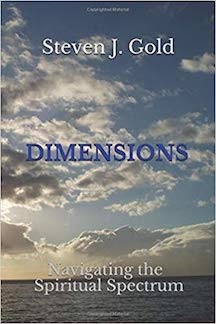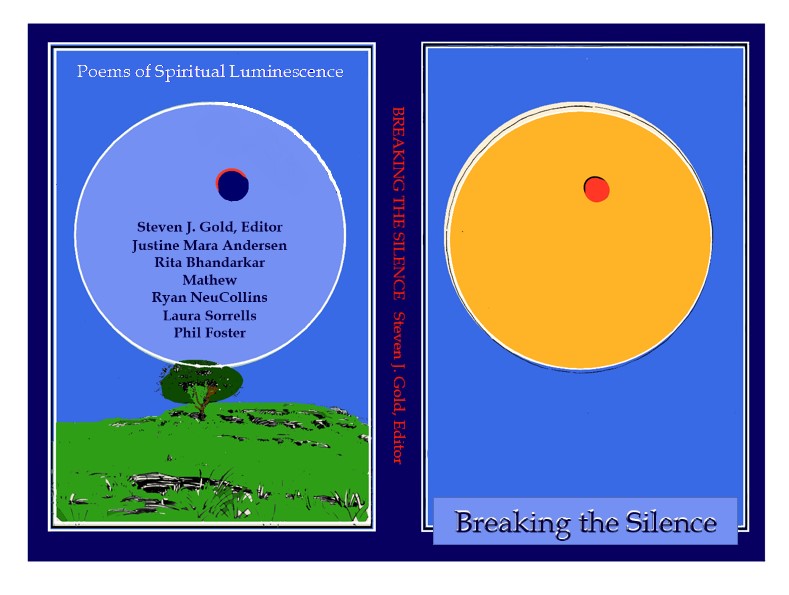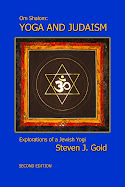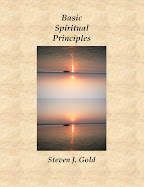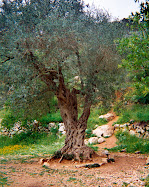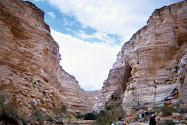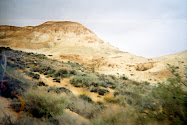I have an entry on this
blog under Bibliography/Book Reviews about Reb Zalman Schacter-Shalomi. He was
gathered to his people this past July 3 at the age of 89. My spiritual life and
ability to rediscover the spirituality within Judaism has been greatly augmented
by his work and his influence on other modern teachers and leaders. I was
personally in his presence only once, several years ago, when I attended a
weekend Shabbaton led by him in Philadelphia, a city in which he spent a good
deal of time during one period in his life. The venue was a grand
old-fashioned movie theater, as is found in some cities. I remember at lunch,
he sat with his family and friends at a big round table. There was a moment
when everyone left him to go get food for themselves and for him, and he was
sitting all alone at the table. Although I was nearby and this presented an
opportunity for me to go over and speak/be with him up close and personal, I
chose to leave him alone. It was enough for me to be with him at this event and
share that moment with him as it was, and I had nothing particularly inspiring
to say to him or to ask him. My only inclination was maybe to introduce myself
and tell him how much I appreciated all that he had done, but somehow, I felt
that was too egoic, and I just left him alone for those few minutes until his
family and friends rejoined him at the table.
Someone who interacted
with him much more over the years, Rabbi Gershon Winkler, has written a
wonderful tribute to him, and he has given me permission to share it here with
you:
download_zalman.exe
A Tribute from
Gershon...
This is
exactly what Reb Zalman told me way back in 1984 when I spent my first of many
long wild whirlwind days working alongside him: "Gersh," he said. I
remember it so clearly as if it were an hour ago. "Gersh," he said,
as he swerved to miss a double-parked car on a narrow Philadelphia street.
"Gersh," he said, pulling up to the storefront of an optometrist.
"Gersh," he said. "When I die, I want the universe to download
me on the cosmic computer as 'zalman.exe.'" I later learned
"exe" was computer lingo back then for "execute," as in
"implement." It was his dream, his hope, his prayer for as long as I
would know him, that what he brought us in his fresh and innovative
interpretations of the wisdom of the ancients would continue in its
ever-creative unfoldings and not go with him to the grave. Zalman worked
night and day building that seemingly impossible bridge, often - very often -
compromising his ailing physical embodiment in the process. It was his gift to
us, that bridge, that beautiful user-friendly bridge over which we could
meander to nurture our souls from a paradigm long lost while we fumbled about
in an age that promised utopian hope while delivering apocalyptic befuddlement.
They
came and took him last week, right from under our noses. They took him back on
the Fifth Day of the Hebrew Moon of Tamuz, which happens to be the very
same date that Ezekiel the Prophet, some 2,400 years earlier, received his very
first vision, the famous vision of the Merkava, the Heavenly Carrier of
the Divine Intent and the angelic forces behind its ever-unfolding
mystery. It was no accident that Zalman left us on that very same day. He
was no less a visionary himself, no less a seer.
Reb
Zalman, you see, was one of the last of the Keepers. He was an ardent Keeper of
the richness of the world we left behind when we crossed over the chasm from
near-annihilation to renewed restoration following the Holocaust. Certainly, many
elders brought that richness with them, all those old guys with the graying
beards, some with numbers tattooed on their arms. They still had it, and they
brought it with them across the great abyss, and they tried to hand it over to
us but we - emerging from the womb of a brave new world -- couldn't understand
their language, and so we left them to the shtetls of Brooklyn and
Jerusalem and went after the younger breed and the seeming purity of their
vernacular. After all, unlike the old ones, the new ones had not been tainted
by the stains of man's inhumanity to man. They brought us a whole new Judaism,
absent the heavily bandaged attributes of the old ones, absent the stench of
smokestacks. We needed the joy and the hope that only the new ones could muster
for us.
But it
wasn't too long before many began to feel the emptiness that the new ones could
not fill; the richness was still only in the hands of the older ones, the ones
admired from afar but who seemed unapproachable. And so many became
disenchanted, and some dropped out altogether. And yet others bee-lined it for
ashrams to sit at the feet of young Yogis, middle-aged Roshis and aging Swamis.
Then they
came. Those two old guys from the other side of the chasm. Shlomo Carlebach and
his colleague Zalman Meshulam Schachter, two yeshiva boys from the old school
who sensed the thirst and responded to a growing generation of disenfranchised
Jews and an ebbing Judaism. They saw how the transplant wasn't taking. They
recognized how the Oriental body of Judaism resisted its Occidental transplant.
Daringly, they stepped into the new but with only one foot, whilst the other
remained firmly entrenched in the old. And it came to pass that Zalman said to
Shlomo: "You reach for the heart and I'll tackle the mind." And
so it was. From campus to campus, from Rainbow Gathering to Rainbow Gathering,
these two tricksters of the old world spun their magic in and around
ever-increasing crowds, watering the flock of Israel once again, this one
singing to parched hearts, this one speaking to emaciated minds, both gifting
their songs and their teachings, their stories and their music, deep deep deep
within and beyond the hearts and souls of hundreds, then thousands, then tens
of thousands, then hundreds of thousands. Until one could no longer keep count
and it didn't matter.
And of
course so many of the new ones tried to emulate the two old guys, strumming
guitars, kvetching out like tunes, imitating teaching styles, telling stories,
but you know and I know and we know that there never again arose anyone quite
like either of them.
And when
Shlomo left us, somehow we were still hopeful, because Zalman was still here.
And he told us the stories and taught us the songs and moved us to davening and
opened our hearts and challenged our minds and fostered ample leverage for the
continuity of our renewal. And of course, we thought, we presumed, we hoped,
Zalman would never leave us. He went on and on and on in spite of surgeries and
hospitalizations and weaknesses and recurring health problems. He had
eventually moved to the pristine air of Boulder, invested in a juicer, married
, and his wonderful Eve, started taking so much better care of himself that
undoubtedly he was going to outlive us all.
And so,
when he didn't - outlive us - we were shocked. We are shocked. The last
of the old guys who knew our language, is gone, and the bridge is shaky,
because -- I need to say this -- even though Zalman knew our language, I
doubt if most of us really knew his.
Since the
beginning of my personal and colleagueship journey with Reb Zalman in 1984, I
was always keenly aware of his loneliness. I am speaking not of loneliness in
terms of companionship but in terms of connection with the traditional
old-school yeshiva culture in which he was born and raised. Periodically, he
would call me for no reason other than to connect with someone with whom he
could speak freely while quoting Aramaic or Hebraic aphorisms interwoven with
obscure Yiddish phrases. "Gersh," he would say on that rare occasion
when I answered the phone, "I just need to talk Rashi with someone."
His
calls were frequent and continued throughout the years, mostly to touch base
with how I was doing, could I send him the source for this or that or the
other, what was I working on, what was Miriam working on, how was Miriam, the
children, the grandchildren, my health, my finances, etc.
As one
who was raised and ordained in the traditional yeshiva world, I was awed not so
much by Reb Zalman's capacity to quote verbatim the ancient source texts of
Midrash, Talmud and Kabbalah - that was to be expected of any rebbe - but of
his uncanny capacity to hold mountains of worldly wisdom as well, and his
unique skill in the rare art of articulating both in ways that spoke to the
novice no less than to the learned, and to non-Jewish audiences no less than to
Jewish ones.
As we
approach Yom Kippur 5775, I am reminded of the last time Miriam and I saw Reb
Zalman in person and the warm loving hug that he gave to us both. It was on Yom
Kippur 5774 (fall of 2013).
He will
be missed for a long time. And then some. The world without Reb Zalman feels
like a computer without a program. May the universe download him speedily in
our times: zalman.exe
Click
"Enter."

